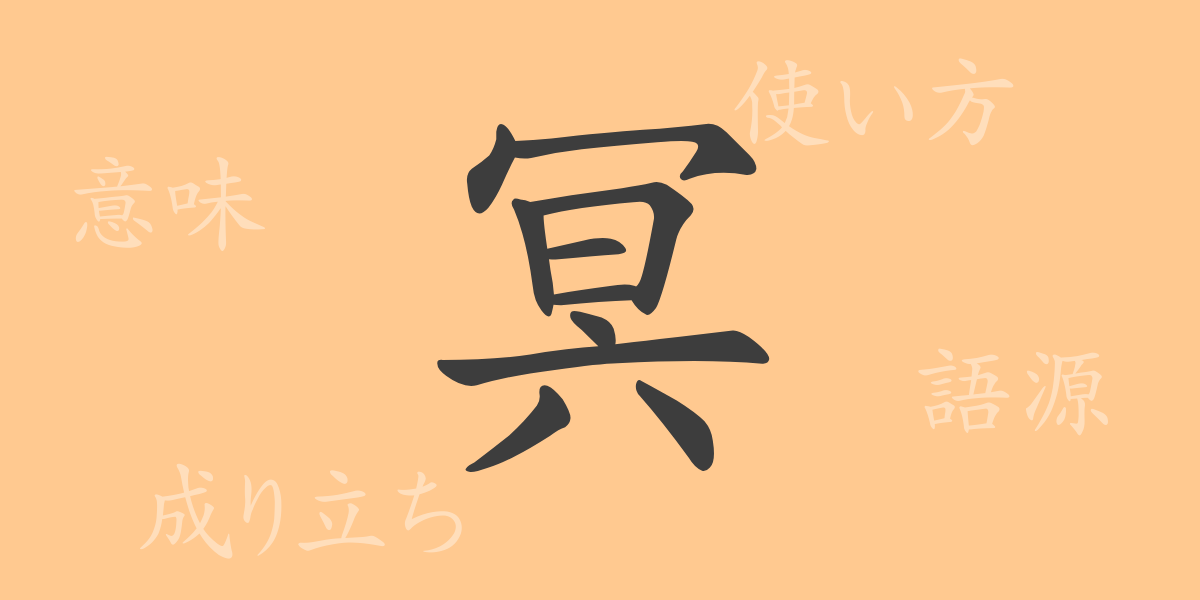The beauty of the Japanese language lies in its complexity and depth. The meaning embedded in a single kanji character evokes layers of culture and history, enriching our expressions. This time, let’s shine a spotlight on the somewhat peculiar kanji character “冥 (mei).” Although not commonly seen in daily life, we will explore what this kanji means and how it is used.
Origin of 冥 (mei)
The kanji 冥 (mei) has its origins in ancient China. It is derived from the word “冥冥 (mei-mei),” which evokes images of night or darkness, and originally referred to a chaotic state before the separation of heaven and earth. Additionally, it has long been used in religious contexts because it conjures images of the afterlife and mystical powers.
Meaning and Usage of 冥 (mei)
冥 (mei) carries meanings such as “dark,” “invisible,” and “the afterlife.” It is also used to indicate abstract concepts, such as in “冥思 (mei-shi),” which means deep contemplation. While not commonly used in everyday Japanese, it plays an important role in specific technical terms and expressions.
Reading, Stroke Count, and Radical of 冥 (mei)
The kanji 冥 (mei) can have different meanings depending on its reading and writing in Japanese.
- Reading: In on’yomi (音読み), it is read as “メイ (mei),” and in kun’yomi (訓読み), it is read as “くら.い (kurai).”
- Stroke Count: 冥 (mei) is a kanji with 15 strokes.
- Radical: The radical of 冥 (mei) is “冖 (wakanmuri).”
Idioms and Proverbs Using 冥 (mei) and Their Meanings
Many idioms and proverbs that include 冥 (mei) capitalize on its mystical resonance. For example, “冥利に尽きる (mei-ri ni tsukiru)” is used to express feeling hidden benefits or profits. Additionally, the idiom “冥思苦考 (mei-shi ku-kou)” represents deep pondering and is sometimes used in business contexts.
Conclusion on 冥 (mei)
The meaning embedded in a single kanji character can change significantly depending on the context in which it is used. The character “冥 (mei)” evokes darkness and the afterlife, but it also has the power to suggest deep thought and meditation. While not frequently used in everyday Japanese, it is indispensable in certain idioms and expressions. Thus, even kanji that seem to have limited applications can reveal their charm when explored deeply.
“`

























